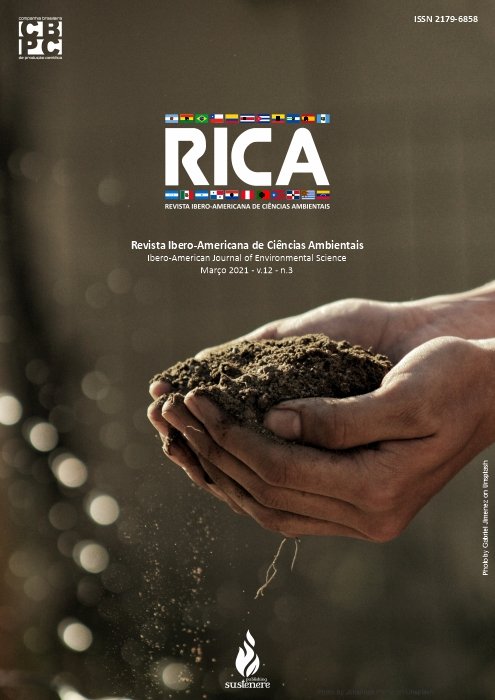Urban agriculture: development of a prototype for growing vegetables in residential environment
DOI:
https://doi.org/10.6008/CBPC2179-6858.2021.003.0052Keywords:
Lysimeters, Water use efficiency, SpinachAbstract
The development of new technologies for food production in home and urban areas has become a growing trend in metropolitan areas. The main goal of this research was to develop and test a prototype for vegetables cultivation in residential areas to promote food safety in urban areas. This prototype is based on a constant water level lysimeter principle and built with materials available in urban areas like tubes, accessories, PVC connections and plastic container. The installation and hydraulic test of the lysimeter were made in a residence in Sorocaba city in order to verify the handling obstacles by the residences. After the construction and hydraulic test the lysimeter was filled with vegetal soil and then the parsley (Petroselinum crispum) planting. Three plantings were carried out to determine the best depth of the water table, which was 0.20 m. Subsequently, spinach (Tetragonia expansa) was planted. In this experiment, in addition to the dry matter at harvest time, the vegetable cover and the height of the spinach were raised throughout the cycle. The soil moisture conditions allowed for a potential growth of the crop, as could be seen through the visual and photographic evaluation of the harvested plant, in addition to the plant height data, which reached 21 cm. At harvest, productivity reached 1,265.1 kg.ha-1, considering dry matter. Throughout the spinach culture cycle, water consumption was monitored and reached 74 mm, corresponding to a water use efficiency of 0.25 kg.m-3, or 17.10 t.ha-1.mm-1. The constructive and operational simplicity, in addition to the independence of the energy supply, demonstrated that the system was suitable for use in homes, contributing to the planning of the use of natural resources aimed at promoting sovereignty and food security in the urban environment.
Downloads
Downloads
Published
Issue
Section
License
The CBPC - Companhia Brasileira de Produção Científica (Brazil CNPJ: 11.221.422/0001-03) the material rights of the published works. The rights relate to the publication of the work anywhere in the world, including rights to renewals, expansions and dissemination of the contribution, as well as other subsidiary rights. All electronically published works may subsequently be published in printed collections under the coordination of this company and / or its partners. The authors preserve the copyright, but are not allowed to publish the contribution in another medium, printed or digital, in Portuguese or in translation.









